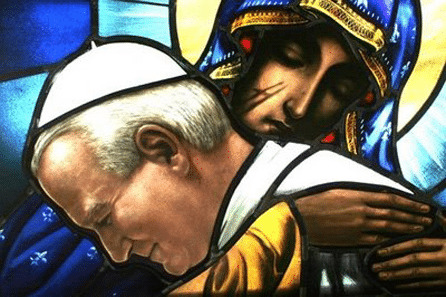Visiting other parts of the world with different religious situation, with different views on the Church and history, initially John Paul II was welcomed with distance. In the Curia, some were calling him “Polish Pope” and I think that this term not always has a positive connotation. But, later on things were explained, the contacts became good. Everybody started to talk about “our Pope.” Of course, he always gave indications, precise and clear. But he was not forcing Bishops in some country or in the Roman Curia to undertake proposed initiatives or specific tasks. He tried to convince…
However, some of the Pope’s directions were not necessarily implemented in the manner presented by him. Others, passing the Curia’s mechanisms, were even changed in a significant manner, and in some cases left on paper.
Some critics believe that this would not have been the case if the Pope had traveled less around the world and remained in the Vatican, if he would govern more….
Well, it would probably be the same. This is also – I say this, of course, after years – that he may have not been ready yet to do the general Curia’s reform. Or perhaps, the Curia itself was not ready to adopt – to restore its real role – the function of service to the Pope and Bishops, hence, to return to be an authentic instrument of communion between the Holy See and the local churches.
But, was Pope Wojtyła aware of the conditions existing in his administration?
If I can put that this way, he had some kind of allergy to everything that in some way could remind him of a contemporary power or simply any power. He also did not think that a Pope must be “all”: he understood the church’s management, guided by the notion of collegiality, and from the experience of the Polish notion of subsidiarity. It could be that in fact, the Holy Father was always looking ahead. He was bothered with the thought that he must immediately see the fruits of his sowing. He was concerned with what constitutes the essence of faith, to make a meeting of a man with God possible. So, that man could live the Gospel, so he/she could discover the thrilling novelty of the Gospel.
At the permission of Cardinal Stanisław Dziwisz – “At the side of the Saint”
St. Stanislaus BM Publisher, Kraków 2013





